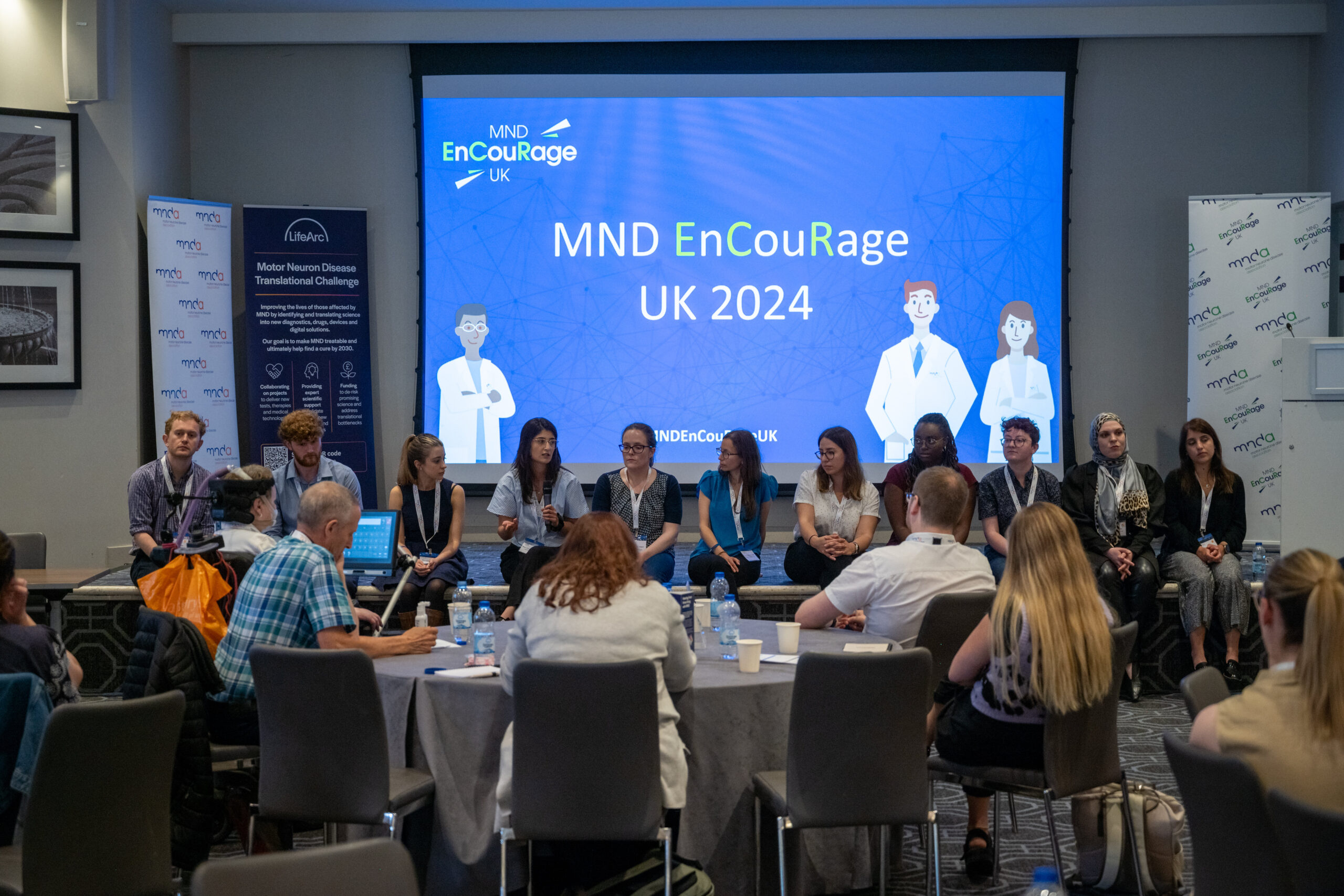 In a fitting start to a new year, the results of the Palliative and End of Life Care Priority Setting Partnership top 10 priorities for research were released today. The topics range from: the best way to get out of hours palliative care, how to provide palliative care for everyone irrespective of where they live in the UK, to the best way to manage pain and discomfort for people with communication or cognitive difficulties.
In a fitting start to a new year, the results of the Palliative and End of Life Care Priority Setting Partnership top 10 priorities for research were released today. The topics range from: the best way to get out of hours palliative care, how to provide palliative care for everyone irrespective of where they live in the UK, to the best way to manage pain and discomfort for people with communication or cognitive difficulties.
For the MND Association the results will help focus future healthcare research and help support our campaigning for more funds for palliative and end of life care. Announcing the top 10 priorities for research is the start of a long process. I hope that it gives people with MND today a sense that their battles are being recognised, they’re not alone and that we’re all working together to ensure that better care is available.
How we got here
Over the last year we’ve been involved in a project investigating palliative and end of life care priorities of people who are most affected – namely people approaching the end of life and those that are there to support them. It was a project led by Marie Curie Cancer Care, facilitated by the James Lind Alliance and involved many stakeholders and partners, including the MND Association.
Today saw a milestone for the project, the publication of a report explaining the project to date, and most excitingly, the top 10 priorities for research in palliative and end of life care. The next step will be ‘converting’ these priorities into research questions, to ask palliative care researchers to generate evidence in these much needed areas.
Thank you
A big thank you to everyone who took part in this project. You may have taken part by completing an online questionnaire around this time last year, or you may have helped prioritise a ‘long list’ of questions in the autumn. Several people affected by MND either in a personal or professional capacity also helped narrow down the list of unanswered questions at a workshop in London in November.
Your top 10
Every response to the survey was carefully read, and the topics mentioned in the responses noted. From these, each topic was checked against the evidence that is already published and a list of 83 questions were produced. After an online ranking process and the workshop in November, a consensus top 10 priorities to pursue in research – in other words areas to find evidence / answers to – were arrived at. The carefully worded questions are written in full in the report, an outline of the topics covered is given below.
- Out of hours palliative care
- Access to palliative care across the UK
- Listening and implementing patient preferences for advanced care planning
- Information and training for carers and families
- Training for healthcare professionals to deliver palliative care (healthcare assistants are specifically mentioned)
- Best ways to deliver palliative care for those with non-cancer diseases (including MND)
- Core palliative care services available to everyone
- Benefits of care in the patient’s home
- Ensuring continuity of care for patients at the end of life
- Assessing pain and discomfort for those with communication or cognitive difficulties
The long list of 83 questions from the project will be added to the Database of Uncertainties about the Effects of Treatment (DUET), so although today’s report is focusing on the top 10, none of the information in the long list of questions will be lost.
“Improving palliative and end of life care is a key part of what we do at the Association and we are proud to be part of this initiative” said Steve Bell, Director of Care for the Association.
“People living with and affected by MND all took part in the survey last year. Their commitment to share experiences and concerns will help shape the research of the future.”
Steve Bell and I are representing the Association at the launch of the report at a Palliative and End of Life Care Research Summit in London today.
You can read the report in full at the bottom of the Marie Curie press release here or via www.palliativecarepsp.org.uk






Delighted to see that training for HCA’s is mentioned. I am an AV with the Norwich & Waveney branch. I recently visited a lady whose husband died in the Norfolk & Norwich hospital on 1 November 2014. She has registered a complaint as she feels that her husband’s death was a direct cause of HCA’s ignorance of how to deal with an MND patient with reduced arterial 02 saturation and diaphragmatic capability.
My husband has ALS or mnd. I like to keep up with research. I’m finding caregiving,even with help, very difficult. We are originally from NZ but now live in Canada. Thanks for your work.